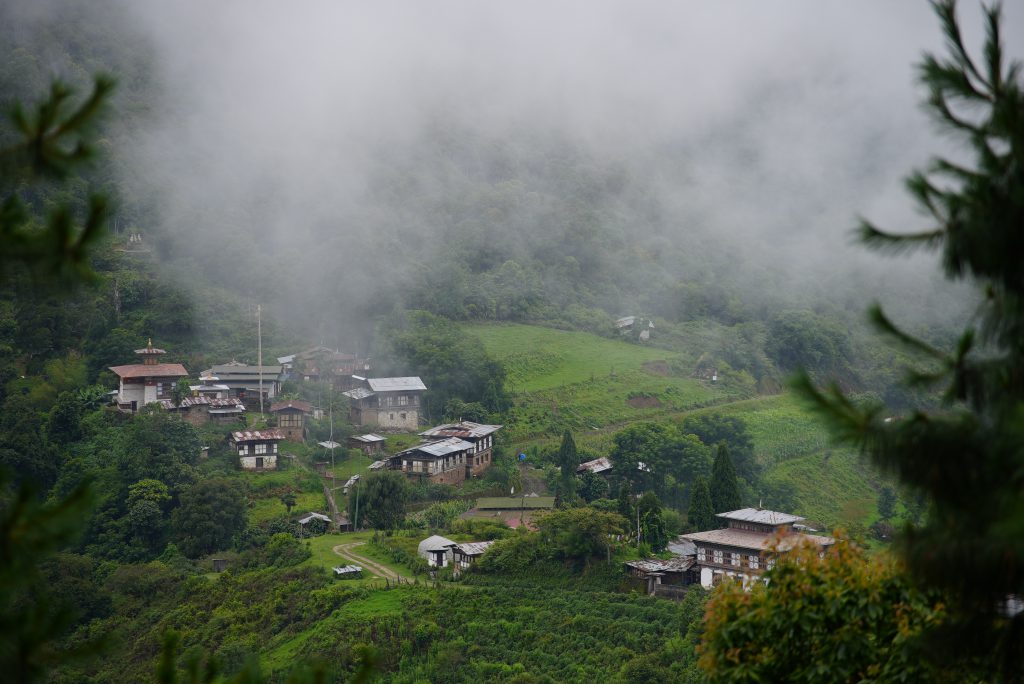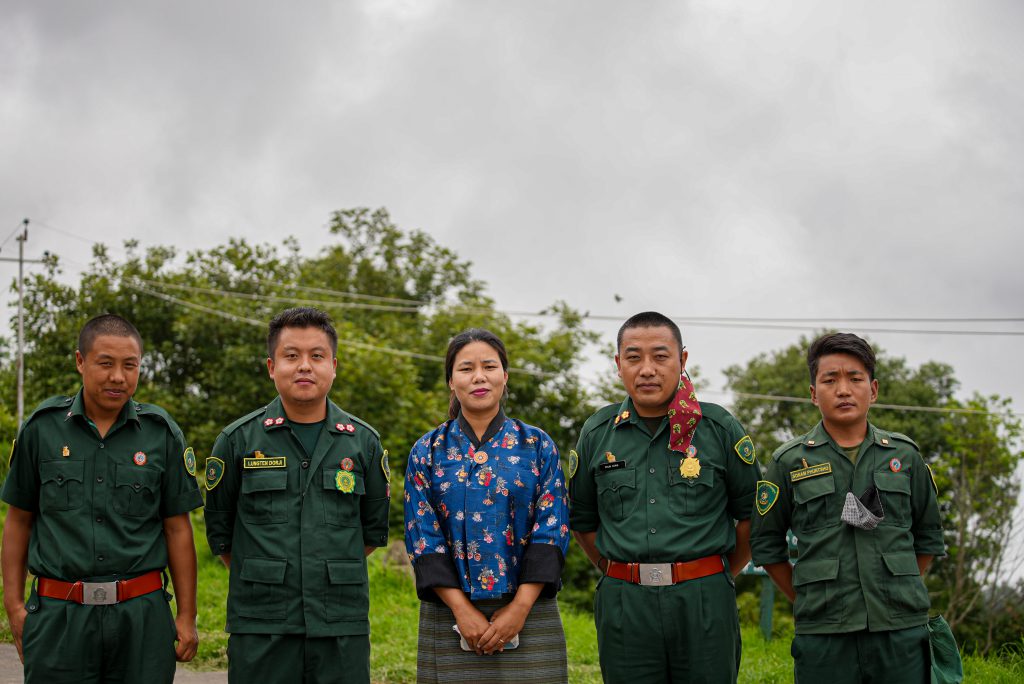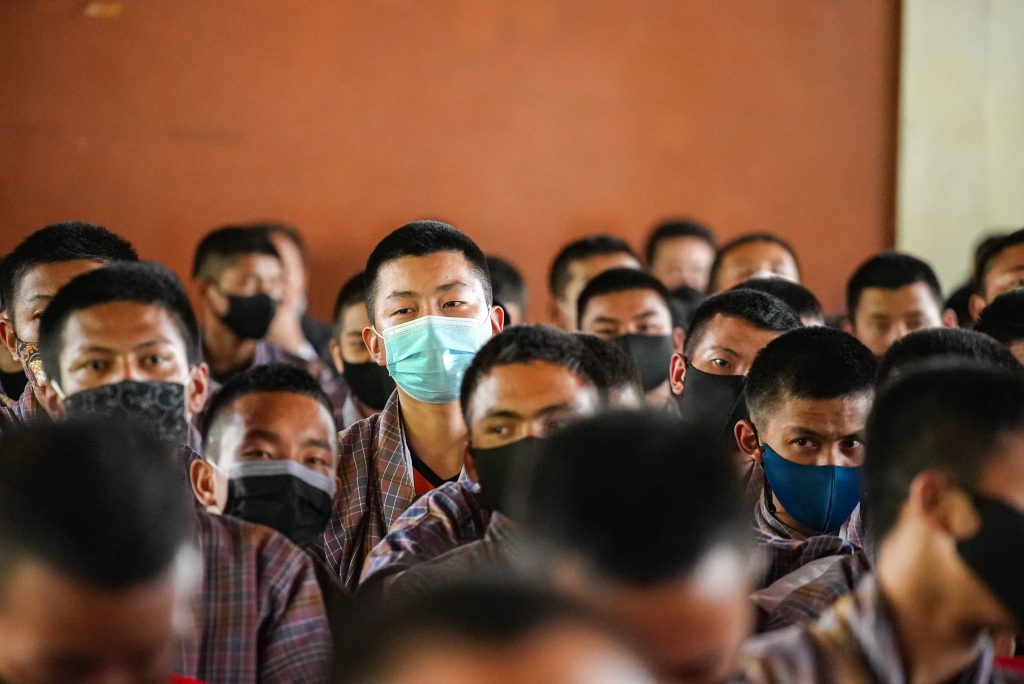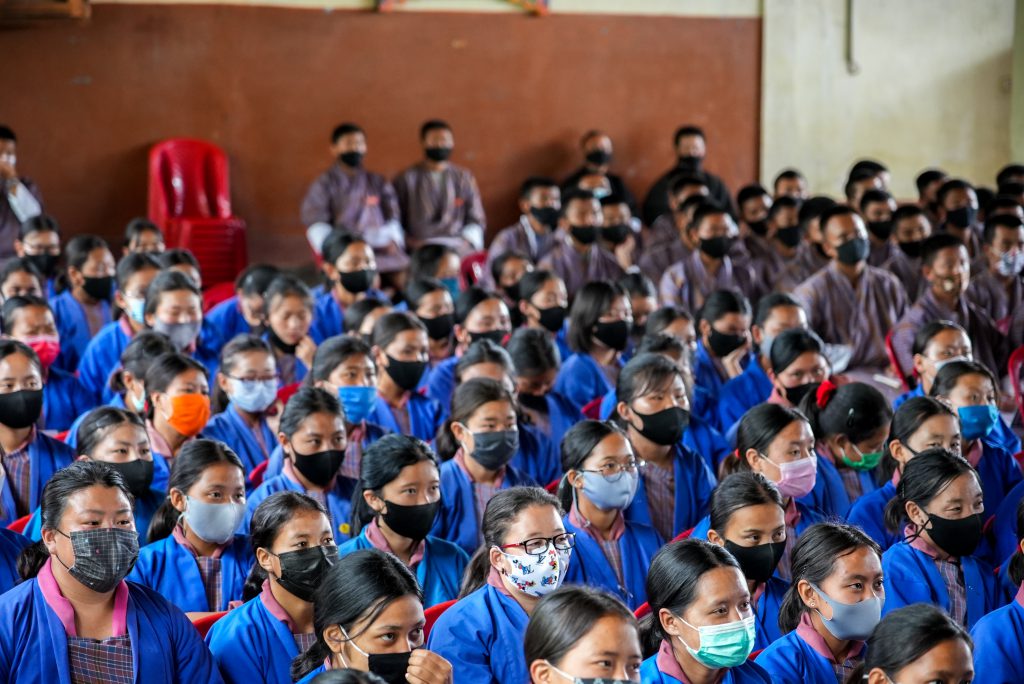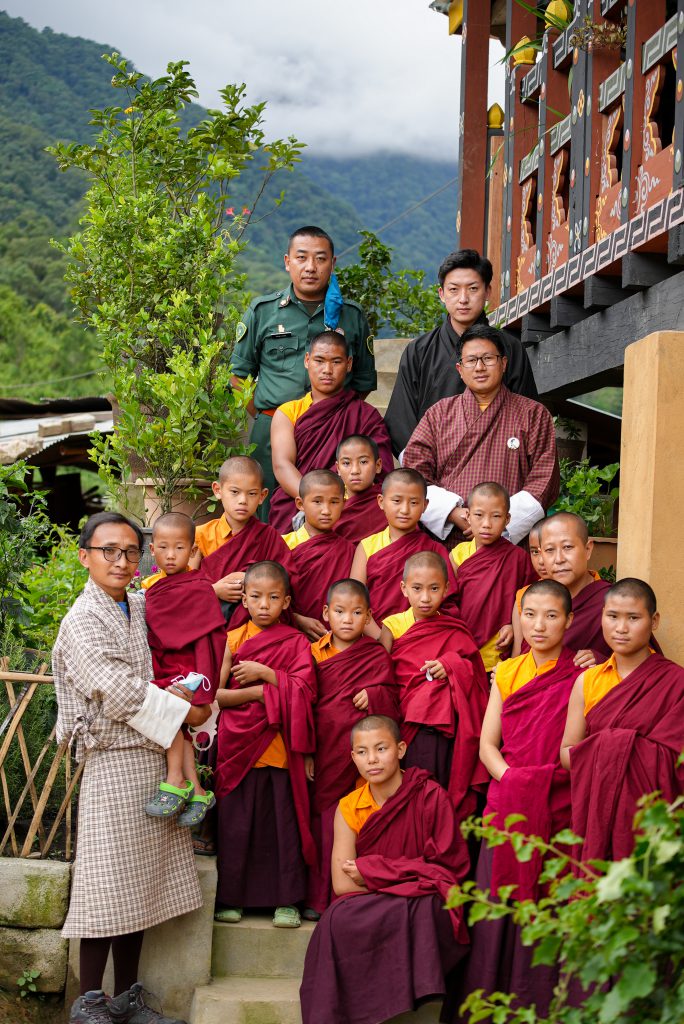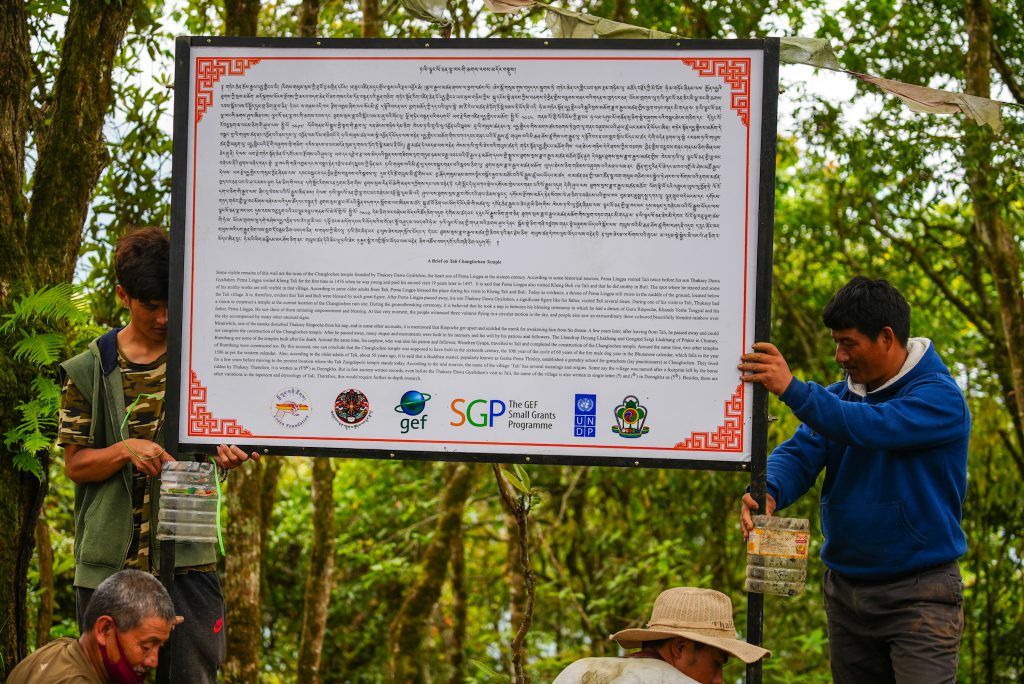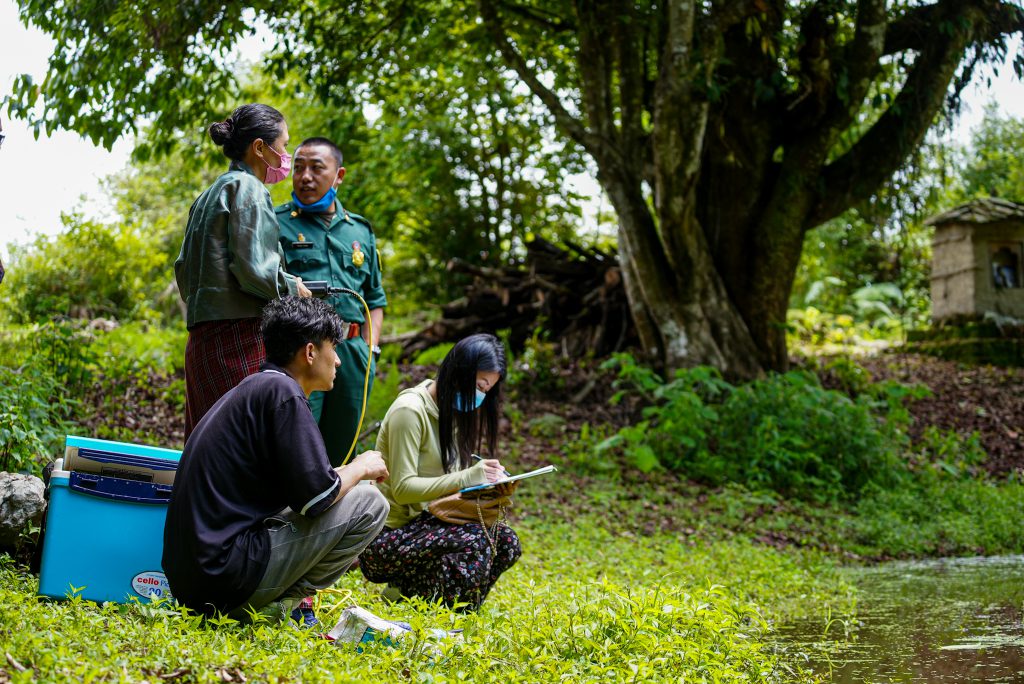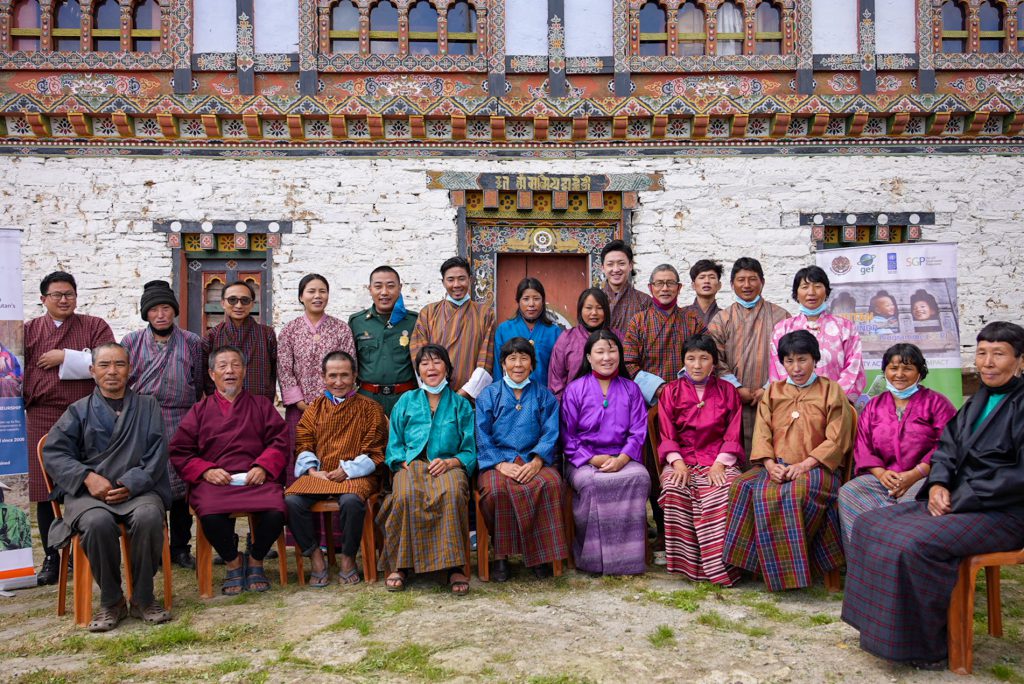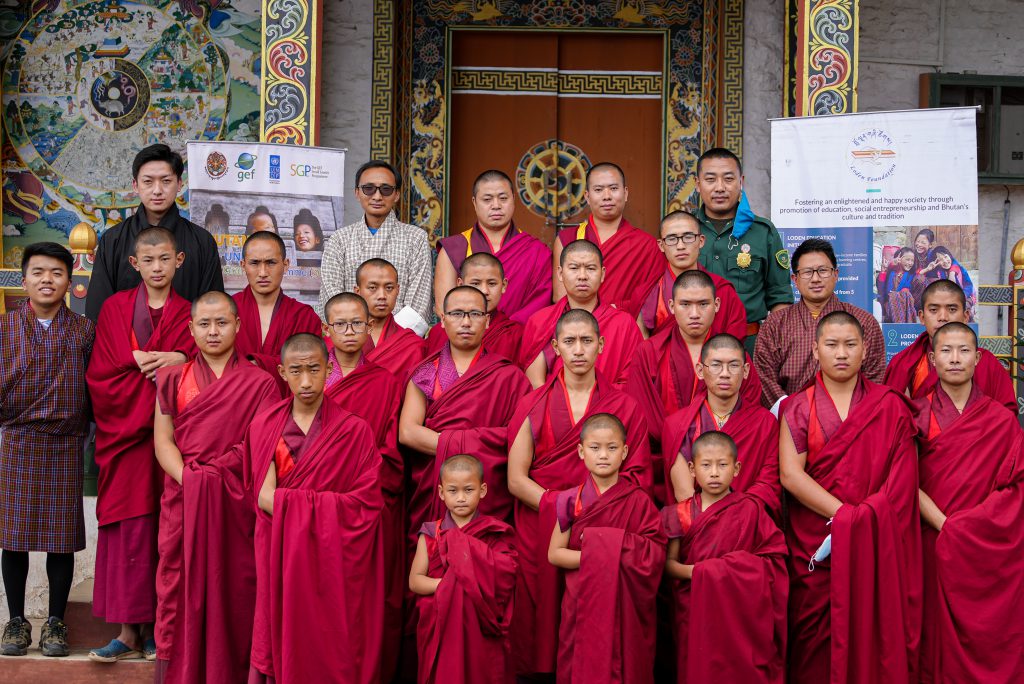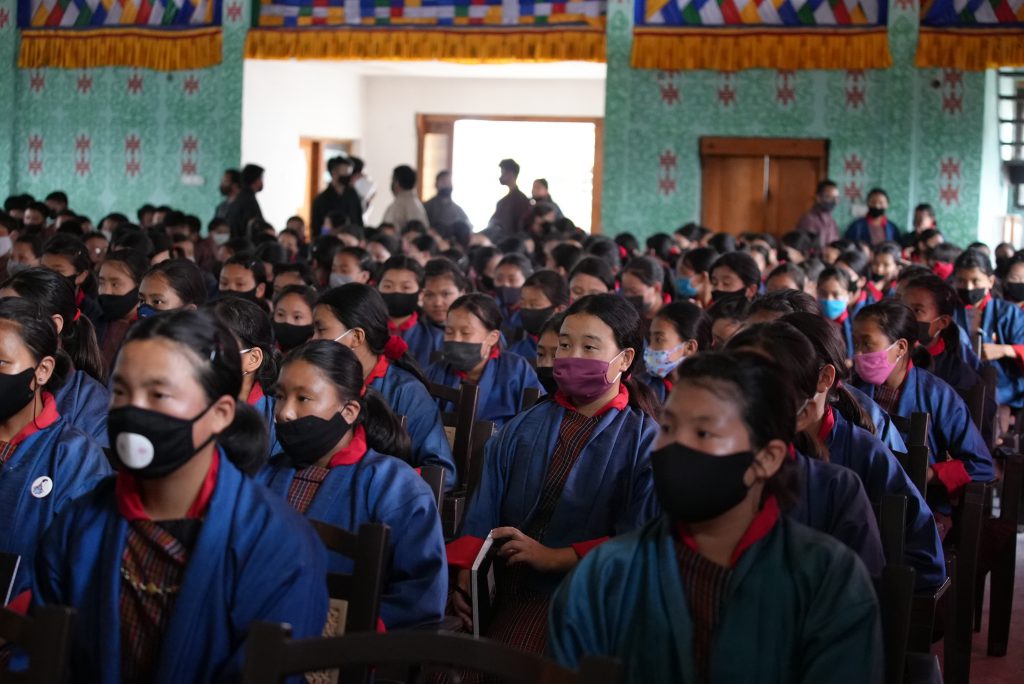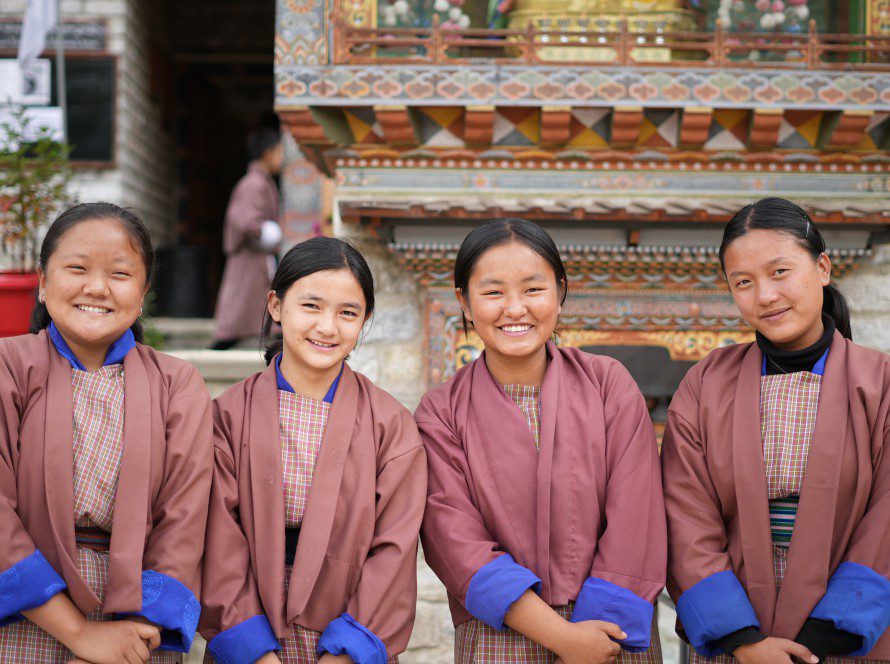As part of our Tali Lake Conservation Project, we visited Zhemgang to create awareness on the importance of conservation and biodiversity and how it is linked to culture and religion. We met with students, monks, nuns and community members, to encourage a collective conservation effort from all stakeholders. While in Tali, we installed information signage and waste bins along the Lake’s surrounding area and also tested and monitored the water quality at the lake.
Special thanks to:
- Officials from Zhemgang Forestry Division who joined the programme to speak on the importance of biodiversity
- The National Environment Commission, for rendering their full support in testing the water from Tali Lake
- Staff and students of Buli Central School, Tali Kunzang Chokhorling Shedra, Ngagyur Pema Chopheling Nunnery, and Zhemgang Higher Secondary School for hosting our programmes
- Nangkor Gewog Administration and Zhemgang Dzongkhag Administration for their facilitation
- Tali Community Members for their support in installing the signboards and waste bins
Above all, we thank the Small Grants Programme under UNDP Bhutan and the Royal Government of Bhutan without whose support, the Tali Lake conservation project would not have been possible.
Note: Face masks and hand sanitizers were distributed at all venues
The project, which is funded by the Small Grants Program (SGP) under UNDP, leverages cultural
and scientific knowledge for environmental conservation. The Lake was found to be in a bad shape, with weeds growing in the lake and unsustainable agricultural practices being carried out in the surrounding areas. The community sought support from Loden to document its historical significance and advice on how to ensure the revival of the lake and sustain it. The Tali Lake Conservatuin Project was launched to conserve the Lake and its ecosystem through spiritual, cultural and scientific interventions and practices. According to local legends, it is said that Tali Laki is the jewel basket of the famous Buli Lake, located in the neighboring village of Buli. Besides its cultural significance, Tali Lake is a source of irrigation water for 25 households in the community. The lake also serves as a source of drinking water for wildlife and domestic animals.
As part of the project, we completed extensive mapping and demarcation of the lake area, developed a footpath and eco-cultural trail, conducted a biodiversity assessment of the area, cleaned the lake, and installed waste bins and information signboards along the eco-trail.


